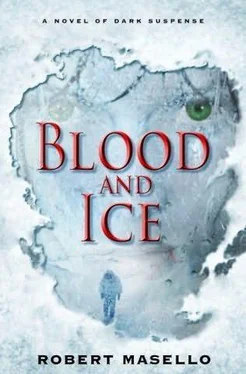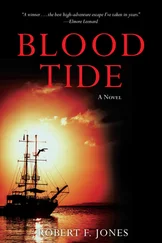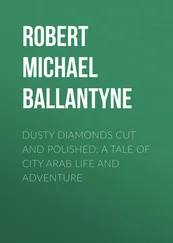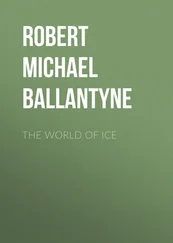Robert Masello - Blood and Ice
Здесь есть возможность читать онлайн «Robert Masello - Blood and Ice» весь текст электронной книги совершенно бесплатно (целиком полную версию без сокращений). В некоторых случаях можно слушать аудио, скачать через торрент в формате fb2 и присутствует краткое содержание. Жанр: Триллер, на английском языке. Описание произведения, (предисловие) а так же отзывы посетителей доступны на портале библиотеки ЛибКат.
- Название:Blood and Ice
- Автор:
- Жанр:
- Год:неизвестен
- ISBN:нет данных
- Рейтинг книги:3 / 5. Голосов: 1
-
Избранное:Добавить в избранное
- Отзывы:
-
Ваша оценка:
- 60
- 1
- 2
- 3
- 4
- 5
Blood and Ice: краткое содержание, описание и аннотация
Предлагаем к чтению аннотацию, описание, краткое содержание или предисловие (зависит от того, что написал сам автор книги «Blood and Ice»). Если вы не нашли необходимую информацию о книге — напишите в комментариях, мы постараемся отыскать её.
Blood and Ice — читать онлайн бесплатно полную книгу (весь текст) целиком
Ниже представлен текст книги, разбитый по страницам. Система сохранения места последней прочитанной страницы, позволяет с удобством читать онлайн бесплатно книгу «Blood and Ice», без необходимости каждый раз заново искать на чём Вы остановились. Поставьте закладку, и сможете в любой момент перейти на страницу, на которой закончили чтение.
Интервал:
Закладка:
He took them down another short flight of metal steps, and the portholes suddenly vanished: Michael figured that they had just descended to below water level. Even the air became closer and danker. Fluorescent tubes in the ceiling flickered, and as they continued to make their way toward the stern, the vibrations in the floor got stronger. So did the noise.
“And here we are,” Kazinski said, ducking into a cabin door. “Home sweet home.”
When Michael and Darryl followed him in, there was barely room for the three of them to stand. There were two narrow bunks attached to opposite walls, with striped woolen blankets pulled military tight; a flat metal tray was folded down from the wall between them. There was one overhead light fixture, burning brightly in a frosted globe, and a plywood door that led to the head; Michael could smell the mildew.
“Is this the deluxe cabin?” Michael joked, and Kazinski laughed.
“Yes, sir. We save this one for visiting dignitaries only.”
“We'll take it.”
“Good decision there. Last two berths on board, sir.”
Darryl, fortunately, didn't seem to mind, either. As soon as Kazinski left, he unzipped one of his bags and started tossing some things onto the bunk on the right. “Say,” he said to Michael, stopping for a second, “did you want that one?”
Michael shook his head. “It's all yours.” He slung his backpack off his shoulder and onto the cot. “But if they leave us chocolates on our pillows at night, I want mine.”
While Darryl unpacked, Michael dug out one of his digital cameras- the Canon S80, good for down-and-dirty wide-angle shots-and went up on deck. The Constellation had left the dock, and was passing slowly southeast down the Beagle Channel, named after HMS Beagle, the very ship that had carried Charles Darwin into those waters in 1834. The air temperature wasn't bad, maybe thirty-six or thirty-seven degrees, and since the ship was still in a relatively protected waterway, the wind was mild. Michael was able to get off a few shots without worrying about gloves and without his fingers going numb. He probably wouldn't be using these for the piece anyway, but he always liked to have a few photos recording every important phase of his trip. He used them as memory aids when it came to the writing part, and it never failed to surprise him that something he remembered one way would show up quite differently when he looked at the photos. The mind could play a lot of tricks on you, he had learned.
The port had slipped into the distance, and the coastline was dusted with a pale green cover of moss and lichen. Patagonian Indians had once populated the wind-ravaged country, and when Ferdinand Magellan, searching for a sheltered westward route in 1520, had seen their burning campfires dotting the barren hills and shore, he had dubbed it Tierra del Fuego, or “The Land of Fire.” There was nothing fiery, or warm, about it now, and certainly no sign of the original Patagonians; they had been decimated by disease and the usurpation of their home by the European explorers. The only signs of life that Michael could see onshore were flocks of snowy petrels, darting among the scoured cliffsides, tending their nests and feeding their young. When his fingers got too cold to handle the camera anymore, he tucked it back in his parka, zipped the pocket closed, and simply leaned over the rail.
The water below was a hard, dark blue, and broke from the sides of the ship in a constant curling motion. Michael had been reading up on the Antarctic ever since getting the assignment from Gillespie, and he knew that this ice-free water wouldn't last long. As soon as they left the channel and entered the Drake Passage-and Cape Horn-the sea would become the roughest on earth. Even now, in the southern hemisphere's summer, icebergs would pose a constant threat. He was actually looking forward to their appearance. Photographing bergs and glaciers, bringing out the delicate hues that ranged from a blinding white to a deep lavender, was an artistic and technical challenge of the first order. And Michael liked a challenge.
He'd been standing there for some time before he became aware of a fellow passenger also at the rail-a black woman with braided hair, bundled up in a long, green down coat. He wondered how long she'd been there. She was maybe twenty feet away, and fumbling with her own camera. From where he stood, Michael thought it looked like a Nikon 35 mm. She was aiming at the water-a couple of sea lions had just popped up, their sleek black heads glistening like bowling balls-and Michael called out, “Not easy from a moving boat, is it?”
She looked over. She had a broad face with high cheekbones and arched brows. “It's never easy,” she said. “I don't even know why I try.”
With one hand on the rail for balance-the sea was fairly calm, but the boat still rolled on the swells-Michael strolled over.
“You must be the photographer we've been waiting for,” she said.
“I am.” He was starting to feel like the class problem. “And you must be the doctor who got here ahead of time.”
“Yeah, well, when you're coming from the Midwest, you make the connections you can.”
They introduced themselves, and Michael glanced at her camera. “You're using film,” he said.
“I've had this camera for ten years, and I've used it maybe twice. What's wrong with film?”
“Right now, it'll be okay. But when the polar weather really hits, you can run into some problems. Film cracks pretty easily in extreme cold.”
She looked at the camera in her hand as if it had betrayed her. “I only brought it ‘cause my mom and my sister said I had to bring back pictures.” Then she brightened. “Maybe I can just borrow some of yours. They'll never know.”
“Help yourself.”
The sea lions bleated, then ducked their heads back under the waves.
“You work for the National Science Foundation?” Michael asked.
“I do now,” she said. “I've got a ton of medical-school loans to pay off.”
Michael guessed that she couldn't have been out of med school more than five or six years.
“Plus, the hospital I work for in Chicago is under active investigation by about six different agencies. I thought it might be a good time to get away.”
“To the Antarctic?” Michael was already making mental notes, thinking she'd be a great character in the Eco-Travel piece.
“You know what they pay for anybody crazy enough to sign up for a six-month stint?” A gust of wind suddenly kicked up, blowing the braids of her hair, some of them streaked with a hint of blond, back over her shoulders. “I can tell you this-it sure beats working in the ER. In fact, I heard about this gig from a friend there, who did it himself about a year ago.”
“And he lived to tell the tale?”
“He said it changed his life.”
“Is that what you're looking to do?” Michael said. “Change your life?”
She pulled back a bit, and paused. “No, I'm pretty happy with my life so far.” But she looked at him a bit warily. “You sure seem curious.”
“Sorry,” he said, “bad habit. It goes with the job.”
“Photographer?”
“I'm a writer, too, I'm afraid.”
“Okay, then-at least I know what I'm up against. But let's take it slow. We've got a whole lot of time, I think, to get acquainted.”
“You're right,” he said, thinking to himself that his interviewing technique might have gotten a bit rusty. “Why don't we just go back to the photo tips and start over?”
He quickly ran down a few pointers for her on taking photographs at sea, especially in the peculiar light so far south, then headed back to his cabin. Take your time, he reminded himself, let your subjects open up on their own. At the door to his cabin, he remembered that he'd been told to dress appropriately for dinner, and he knew he'd have to dig out his least wrinkled flannel shirt, slip it under the mattress, and lie down on it for a while.
Читать дальшеИнтервал:
Закладка:
Похожие книги на «Blood and Ice»
Представляем Вашему вниманию похожие книги на «Blood and Ice» списком для выбора. Мы отобрали схожую по названию и смыслу литературу в надежде предоставить читателям больше вариантов отыскать новые, интересные, ещё непрочитанные произведения.
Обсуждение, отзывы о книге «Blood and Ice» и просто собственные мнения читателей. Оставьте ваши комментарии, напишите, что Вы думаете о произведении, его смысле или главных героях. Укажите что конкретно понравилось, а что нет, и почему Вы так считаете.












